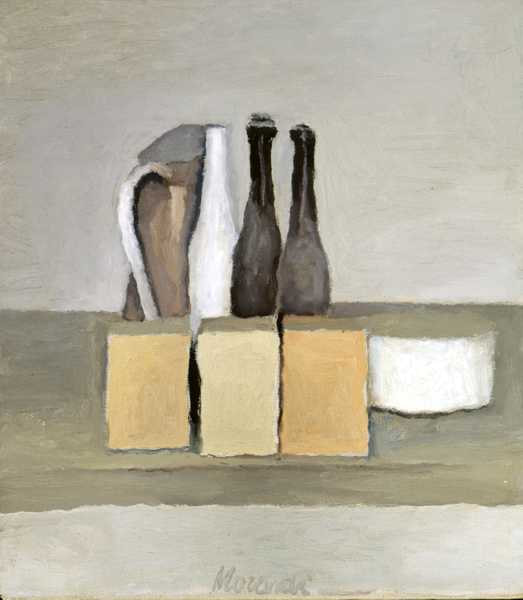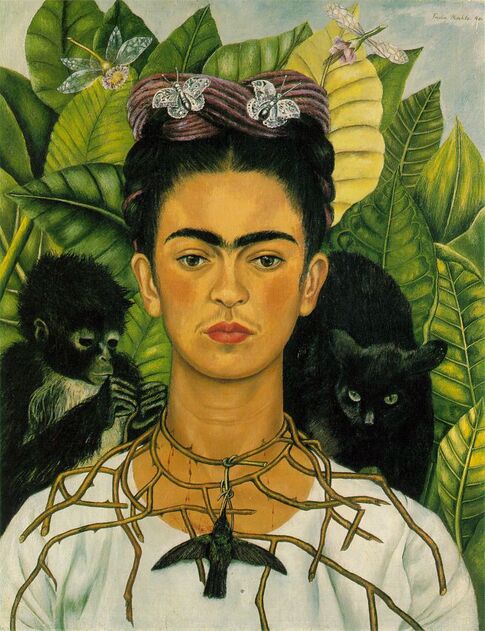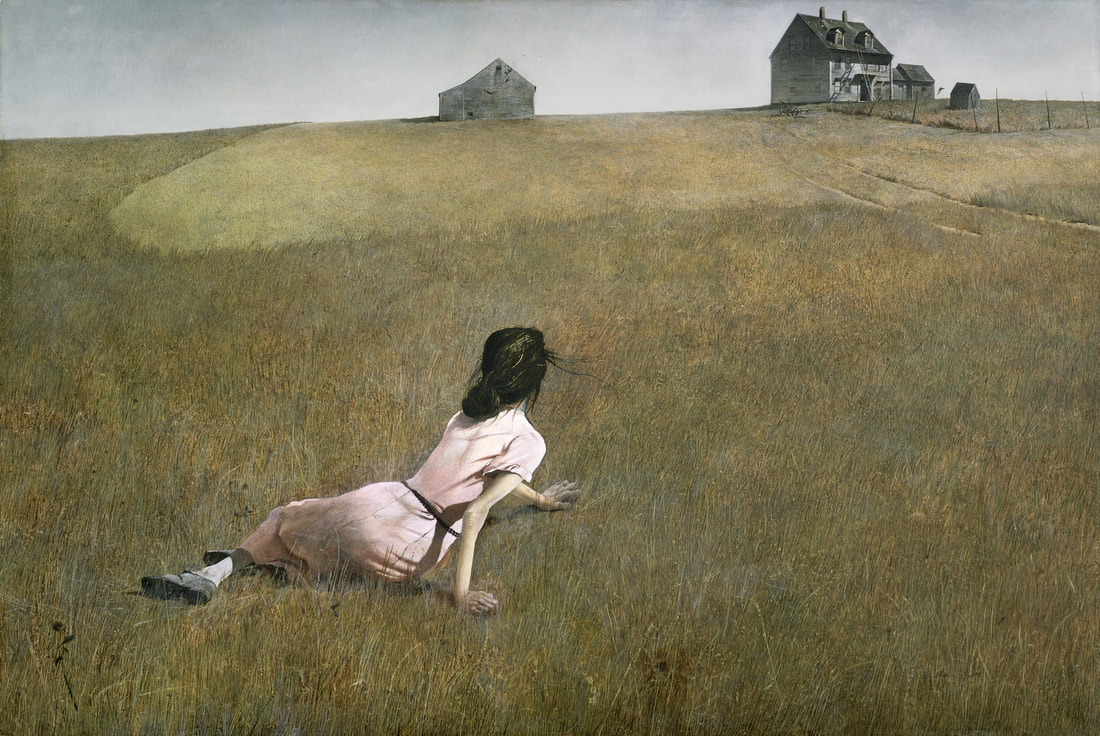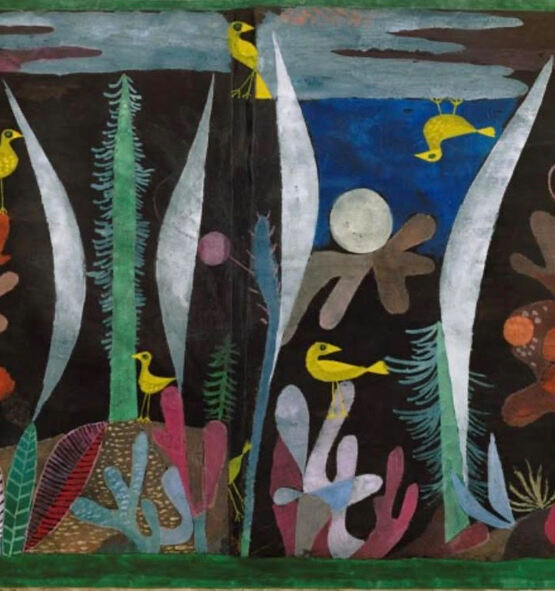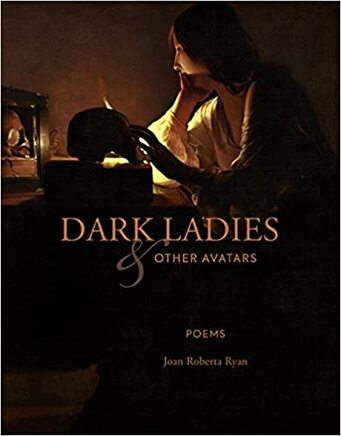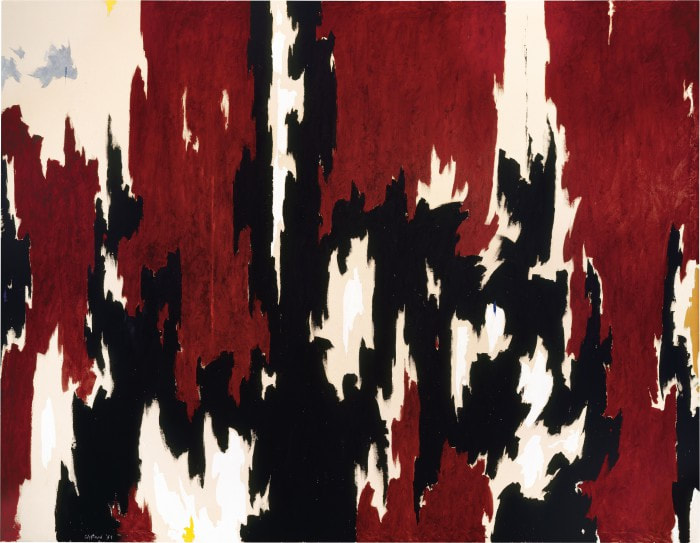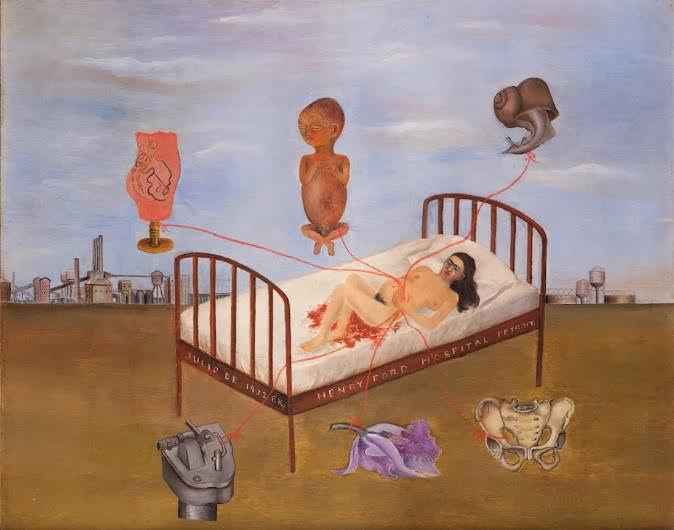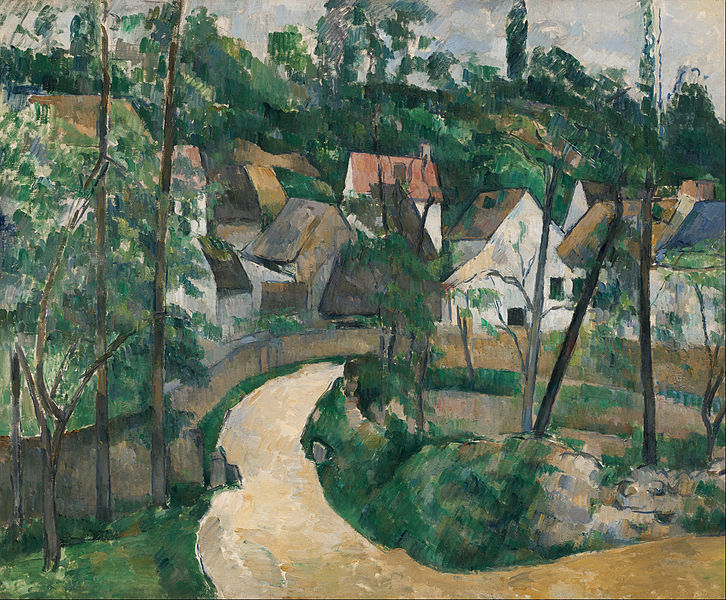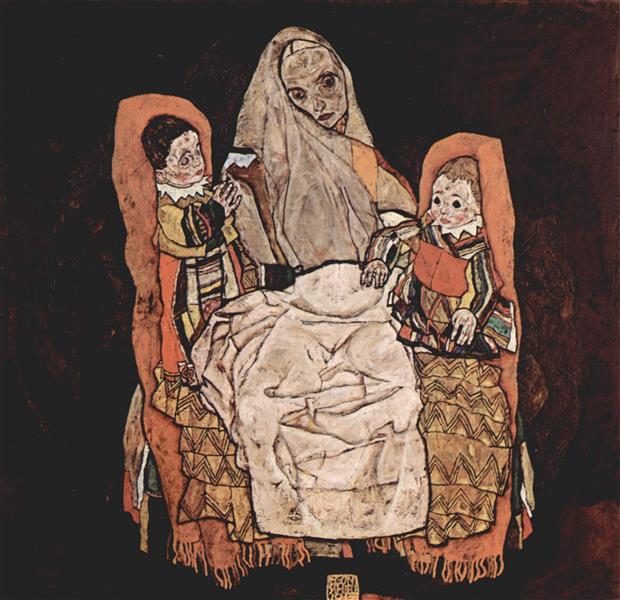|
Arranged Order The table Wears it all - Contour, space, Dust, shape - Like an amulet John Stickney John Stickney is a poet and writer, newly relocated to Wilmington, NC from Cleveland, Oh. ** life still rises it’s still life alone even if we don’t celebrate or meet together anymore it’s still all right to share a drink or talk with grandma at the home suspended in a box people softly chatting smiling and strangers mingling virtually our friends connecting through the phones we press our face into the screens zooming conversations they wear the shock they wear a mask or not still quiet lonely let’s celebrate what joy we can before our time dissolves on earth before our souls arrive with God let’s drink to fragrant memories and vibrant hopeful days don’t conjure thoughts of coffined graves or moldy asiago cheese. instead let’s shine the light of God let’s storm in spite of Covid-fears the gates of courage not defeat in pixelated homes and solitary prose because life still rises Patricia Tiffany Morris Patricia Tiffany Morris gravitates toward inspirational messages of hope and encourages others to find their inner artist. An eclectic Christian creative with a geeky-tech affinity and a poet with three names, Patricia writes fiction, picture books, and prose, using both sides of her brain. She discovered her love for digital artwork and now creates acrylic and alcohol-ink painting illustrations on her iPad. Patricia Tiffany adores hashtags and Pinterest but finds Twitter quirky. A member of Word Weavers International, ACFW, WFWA, SCBWI, OCW[TI1] , and loads of FB groups, Patricia runs Tiffany Inks Studio. ** Bacchanal Cheese: Havarti Kashkaval Port-Salut round of Brie Drink: Beaujolais Chardonnay Zinfandel jug of beer Feast: gormandize lift a glass laughs, bellows raucous dances Judy Oliver Judy Oliver: "After retiring from teaching elementary and middle school, I joined a poetry group that was offered by LifeVentures Adventures in Learning; Roy Beckemeyer was the leader. Those weekly writing and critique sessions encouraged me to try different poetic forms." ** Still Life One stopper, three bottles. Holding a six year Barbera Or the blood of Christ? You tell me, it depends If it’s the Sabbath Or a day for sinners. Seeing as how I can’t remember Which day turned over the Horizon, nor where I placed The two missing stoppers; I assume it is a weekday And I am late for work. Mike Mortensen Mike Mortensen is a mental health therapist who specializes in trauma and addiction. Grand Prize Winner of the 1st annual Provo-Poetry competition, his work can be found in various journals such as Ink & Nebula, Gasher Journal, and 15 Bytes. His work has also been displayed in a multiple discipline art gallery at the University of Arizona, Tucson for poetry and printmaking. He lives in Southern Utah with his dogs and family. ** An Empty Life There you are standing still waiting for guidance. Unsure. Unable to move-only to be seen. The vessel of faith and hope so close. Complete your destiny. With the blessings of the world. You may endure pain and judgment. A star or a crucifix. All things are open. All options possible. We must choose. We must choose well. To caress with kindness this still and empty vessel. Sandy Rochelle Sandy Rochelle is an award winning Internationally published poet. Her film, Silent Journey, streaming on Culture Unplugged is dedicated to films of social and spiritual significance @ http://www.cultureunplugged.com/storyteller/Sandy_Rochelle ** Looking Hard at What You See I am going to simplify my life, wear muted clothes, brown skirts and white shirts, sensible shoes a gray hat. Who wouldn’t want to be that humble in harmony with those leaning in to touch another quietly and experience how supple an edge can be. How shadow suggests the rounding out of surface. To be both squared and solid containing the salt of the earth. and a vessel to keep oil ready to pour. I don’t need to stand out in red heels or consider if purple earrings go with a pink pencil skirt, always the painted lady running errands in bright sun. I had my heyday, now I must blend in rest, welcome a diffused light, the illusion of space with no need to move through it. To be still, allow dust to accumulate on lips. permit myself to float free of the shelf, the table and become a pure geometry. Diana Cole Diana Cole, a Pushcart Prize nominee, has had poems published in numerous journals including Poetry East, Spillway, the Tar River Review, the Cider Press Review, Friends Journal, Verse Daily, The Ekphrastic Review and the Main Street Rag. Her chapbook, Songs By Heart was published in 2018 by Iris Press. She is an editor for The Crosswinds Poetry Journal and a member of Ocean State Poets whose mission is to encourage the reading, writing and sharing of poetry. When she is not writing, Ms. Cole is a stained glass artist. ** Three Blocks and a Round White of pitcher handle and a bottle beside balanced by rind of a round of cheese below How do you achieve aesthetics in a row of four? By making it about the two Rows By concentrating on the couple the tension between the two Enough to spark the night with neon over the colour of the beach where they always laid Created three children possibility of a fourth just there off to the side Waiting Kyle Laws Kyle Laws is based out of Steel City Art Works in Pueblo, CO where she directs Line/Circle: Women Poets in Performance. Her collections include Ride the Pink Horse (Stubborn Mule Press, 2019), Faces of Fishing Creek (Middle Creek Publishing, 2018), This Town: Poems of Correspondence with Jared Smith (Liquid Light Press, 2017), So Bright to Blind (Five Oaks Press, 2015), and Wildwood (Lummox Press, 2014). With eight nominations for a Pushcart Prize, her poems and essays have appeared in magazines and anthologies in the U.S., U.K., Canada, and Germany. She is the editor and publisher of Casa de Cinco Hermanas Press. ** Plainsong I do not want to eat the artist's cheese. I do not want to drink the artist's wine. I would consider accepting a glass of clear water from the copper pitcher in the plain still life of the plain still room with its plain still table if I were allowed to return the pitcher to its perfect spot and if I were allowed to return to my place and watch quietly and learn how it is one moment eternally rests. Shirley Glubka Shirley Glubka, whose work has appeared often at The Ekphrastic Review in the past, is a retired psychotherapist, poet, essayist, and novelist. Her most recent chapbook is Reflections Caught Leaping: poetry and related prose. Her latest novel: The Bright Logic of Wilma Schuh. Shirley lives in Prospect, Maine with her spouse, Virginia Holmes. Website: http://shirleyglubka.weebly.com ** Still Life, Real City Emptied of pride, Prosecco, and flowers, pitchers, vases tower over squat rectangles leading to the round piazza of perfection hugging the horizon line of still life, where table meets the wall. In my mind, I have trekked this path, past the high and low to that place of rotund solace where lovers, freed from rigid lines mingle, laugh, watch fountain, by day grab a quick espresso, or in pomeriggio, with appertivi indulge in a Prosecco, gifting flowers to fidanzati. Joan Leotta Joan Leotta tells stories on page and stage. Her fascination with art began at an early age and she loves to write and tell about paintings, sculptures and more, Her ekphrastic poems and tales have been presented on these pages, on Visual Verse, at the Ashmoleon Gallery in Oxford England and the Phillips Gallery in Washington DC and others. She, like Morandi spent a lot of time walking among towers, pitchers, rectangles and circular piazzas--Bologna's main piazza is not circular, but that of Sienna is a well-known circle. ** Still Life The sky is beige and free of blandishments. Soon, I am off to the Muses -- his bottles and jug on a stage arranged like tailors’ dummies. On a plaza in Ferrara — or maybe just a table -- I am seeing cheese and a tub of margarine. Since lockdown, mystery exudes in rooms with no loving presence. Bare minimalism. I’ve tried hard, though I can’t stay here forever, off again to thoughts of futurism or long afternoons in front of a mirror: pushing my lips against the true stillness, tilting the glass, seeing the floor slide away, praying for an escape to another dimension. Patrick Wright Patrick Wright has a poetry collection, Full Sight Of Her, forthcoming by Eyewear (2020). He has been shortlisted for the Bridport Prize, and his poems have appeared in several magazines, most recently Agenda, The High Window, and Wasafiri. He is currently working on a Ph.D. in Creative Writing, on the ekphrasis of abstract and monochromatic art, supervised by Jane Yeh and Siobhan Campbell. He teaches English Literature and Creative Writing at the Open University. ** be still be calm escape chit chat, politics, long-distance travel, parties, anything modern, glamour, wealth, notoriety, lust think simplicity, shape, space, light, colour, humble gradients of grey, shadows on white, village ochres, browns focus on bottles, boxes a dull jug, this room, the pattern, order, the shift, back and forth, up, left, swivelling angles slightly create harmony in line, in rows, in shade, tone, brushwork, right now, with hands, eyes and brain together, make art, be calm be still Dorothy Burrows Based in the United Kingdom, Dorothy Burrows enjoys writing flash fiction, short plays and poetry. This year her poems have been published on various ezines including Words for the Wild, Another North and Nine Muses Poetry. ** The Poverty of the Affluent They will never know the sponsors and investors the buyers and admirers that the purest lines contain the widest worlds emotions fathoms deeper than their sparkling pools. They will never feel the cool of limewashed walls in afternoon heat the smell of new bread and ewe’s milk cheese basil in pots on a sunny window sill hear the peaceful drone of cicadas above the poolside chatter and the air conditioning. They will never know what it is to feel the pulse of the day in clay the clean sharp folds of white linen and the way the light falls slantwise beneath the half-closed shutter across a floor pattered by a child’s bare feet. Jane Dougherty Jane Dougherty lives and works in southwest France. Her poems and stories have been published in magazines and journals including Ogham Stone, Hedgerow Journal, Visual Verse, ink sweat and tears, Eye to the Telescope, Nightingale & Sparrow, the Drabble, Lucent Dreaming and the Ekphrastic Review. She has a well-stocked blog at https://janedougherty.wordpress.com/ ** The Pecorino in Still Life, 1956 responds to Giorgio Morandi’s Nudge I’m khaki-topped again, almost camouflaged, without even a hint of shine and now you shunt me off to the side behind this row of uneven boxes? For all to see? Forever? Really? You know you could arrange me on a fancy porcelain platter and slice me open to release a heady aroma? Why not take a bite or two to show how irresistible I am? But who’s going to discern that? It’s always just the same old muted palette – beige, grey, pale, powdery. If only you’d wrap me in parchment or crimson batik, drape cheese cloth round my curves begging to be torn off and place me downstage-centre, spot-lit. No? Even after all these hours of tweaking? So here I sit, the epitome of Everyday Cheese Wheel skulking among these familiar utensils that no-one is ever going to oooh and aaah over. Have you even forgotten that I’m edible? The bottles never gurgle with Chianti or Lambrusco and I’ve just heard the white vase sigh. It’s desperate for a peony or sunflower. I dread to imagine what the boxes will have to say when they emerge from their tight-lipped sulk. Don’t you reckon it’s the hod though, that could be redeemed? I do. Snuggled close to the white vase, its handle, like a cat’s tail curling round in ownership, makes it beam. And possibly those two black bottles angled together? With hats and coats on like an ageing couple, they’re heading out for a stroll round the block, leaving me on the shelf turning blue. May mould flourish in your walls with reckless abandon and may the stench of ammoniated cheese permeate your monastic quarantine forever. Helen Freeman Helen has been published on several sites such as Ink, Sweat and Tears, Red River Review, Barren Magazine, The Drabble, Sukoon and the Ekphrastic Review. Her instagram page is @chemchemi.hf. She lives in Durham, England. ** Private Arts Monaco springs with vibrant pulse, spin low tax, grand-prix, roulette wheels, sum wealth, full fashions for display. Il Monaco, the monk, as known, Bologna cell for eremite; here brush the tranquil of still life, years spanned as Studiorum stands. Bottles and boxes, vases, jugs, as dun baked village on the hill, San Gimignano and the sky. The monumental brought to ledge, all labels gone, letters erased, glare glass reflections glazed with matt. Provincial tag, intended slur, but early buds showed renaissance, light slowly passing into night, serial time encapsulate. So paint the seen and not the scene - that is the space that needs the art - as most find time for neither part. Some private prayer externalised. Stephen Kingsnorth Stephen Kingsnorth (Cambridge M.A., English & Religious Studies), retired to Wales from ministry in the Methodist Church, has had over 150 pieces published by on-line poetry sites, including The Ekphrastic Review, printed journals and anthologies. https://poetrykingsnorth.wordpress.com/ ** Luna Moth Spare still life shades of taupe grey oil on canvas body no longer that soft white colour I wanted to give it a clear night with a full moon take it up a mountain close by allow the same light to fall on its grave pale bleached grass distances increase I place the moth in my hand and tell it how sorry I am her life is ending shredded sea green wings frayed. Worked, muted take it up there to be released. The day after my sister died in the time of blue plum. Ilona Martonfi Ilona Martonfi is an editor, poet, curator, advocate and activist. Author of four poetry books, the most recent collection is Salt Bride (Inanna, 2019). Forthcoming, The Tempest (Inanna, 2021). Writes in journals, anthologies, and six chapbooks. Her poem “Dachau on a Rainy Day” was nominated for the 2018 Pushcart Prize. Founder and Curator of Visual Arts Centre Reading Series and Argo Bookshop Reading Series. QWF 2010 Community Award. ** Il Monaco (The Monk) Afternoon light sifts through the bedroom window facing the street Via Fondazza. It falls on bottles of wine & blocks of cheese on the table. There’s nothing special about them, just every-day non-descript things from the kitchen. But in Bologna, the wine and cheeses are exquisite. They will go with the meal that his sisters (Anna, Dina and Maria Teresa) are preparing: roast lamb and un piatto di tagliatelle ready for the robust ragu, a Bolognese sauce for the delicate egg-pasta. The Parmigiano Reggiano, ready to be grated, and an uncorked bottle of ruby red Barbera is breathing in the rich air. Today he’s not a recluse. At the dinner table, Giorgio and his sisters discuss art, Natura Morta (Still Life), and the use of muted whites, grays, and tinges of colour for jars, bottles and pitchers sitting silent and humble, not boasting to be admired, somber with a dull matte appearance—utterly without pretension—arranged in deceptive simplicity, yet, it took weeks of obsessive shuffling to achieve the right composition. They talk about Mussolini. It was a good thing for Italy his execution eleven years earlier this month. They raise their glasses, nod with approval. A perfect balance is essential to enjoy life more fully in art, in food, and even politics. John C. Mannone John C. Mannone has poems appearing in North Dakota Quarterly, Le Menteur, Blue Fifth Review, Poetry South, Baltimore Review, 2020 Antarctic Poetry Exhibition, and others. His poetry won the Impressions of Appalachia Creative Arts Contest (2020). He was awarded a Jean Ritchie Fellowship (2017) in Appalachian literature and served as celebrity judge for the National Federation of State Poetry Societies (2018). His latest collection, Flux Lines: The Intersection of Science, Love, and Poetry, is forthcoming from Linnet’s Wings Press (2020). He edits poetry for Abyss & Apex and other journals. A retired physics professor, he lives near Knoxville, Tennessee. ** The Blocks and the Jug and the Bottles Dance It had taken days to choose them. The subtlety of their form. Their tones, the textures. How they would reflect the morning sun. It had taken hours to arrange them. The composition of the group. In front, behind, alongside. How they would complement each other. It had taken minutes to draw them. The finessing of the lines. Horizon with perspective. How their shapes etiolated my cartoon. It took me aeons to paint them. The colours, hues, shadows, the dark. Took me forever to sell it. Many flies have feathers out there. Yet it took death for recognition. Lung cancer won its battle. The blocks and the jug and the bottles dance beyond Bologna, beyond my tomb. Alun Robert Alun Robert is a prolific creator of lyrical verse. Of late, he has achieved success in poetry competitions and featured in international literary magazines, anthologies and on the web. He particularly enjoys ekphrastic challenges. In 2019, he was a Featured Writer of the Federation of Writers Scotland. ** Still Life We are lined up for our shapes and colours. We weren’t asked, but told, forced to stand here like women punished for obeying what we are, for complicity in madness, not capable of speech, though we say much. We’re given chalk to eat. And dust. And one hour that goes on forever. Stand there, he says, the man, who only yesterday fed his argument with life a few tubes of oil. Stand there and dance lonely until the light changes. We are tired of dancing and thirsty for yellow or even a touch of blue. Instead we're given stormlight, a dress made of shadows, old blocks of stone. We pray the light changes quickly. We pray it will be over soon. Lenny DellaRocca Lenny DellaRocca is founder and co-publisher of South Florida Poetry Journal. He has four collections of poetry. His has a poem forthcoming in Mom Egg Review. Other poems have appeared in various literary magazines since 1980. He lives in Delray beach, FL where he wears a mask. ** Gardens I pour two glasses of wine and wish I had made the time to stomp grapes with you. I nibble at herbs in olive oil and remember when you begged me to start a garden. The apartment was too small, I had said. Fresh rosemary now sprouts from the kitchen’s windowsill. I use it when following your recipes––you were a better chef than I will ever be. Niko Malouf Niko Malouf: "As a teenager living in Los Angeles, I enjoy writing about the things that surround me, stimulate me, the events of my adolescence as well as the happenings of the world. I hope to share my experiences and perspective with others and inspire them to do the same." ** Sky Over Bologna
"...if we could see all wavelengths simultaneously there would be so much light that we couldn't see anything. Or rather we would see every- thing and nothing simultaneously. The excess of light would leave everything in a senseless glow." the poet contemplating light and physics "What interests me most is expressing what's in nature, in the visible world, that is." Giorgio Morandi i. Landscape In the brash collision of clouds over the Porta Ravegnana, the summer sky was ignited by sheet lightning... To Maria Theresa, Anna and Dina Morandi, sitting under awnings in the arcade as they waited for the rain to come, the sky's sharp contrast was unlike their brother, Giorgio, a quiet man, and shy, his art created with unexpressed emotion, his paint pigment filled with so much light his Natura morta is more subtle than the storm, painted in colours of unbleached linen and silk, a memory of textiles rationed when art was a component of fascist society, a strange lifeless bubble without tones of grey to white, waves cresting when storm threatened the Adriatic in the girls' memory of a trip made to the beaches before winter came. Giorgio did not like travel, and escaped the heat in mountains south of Bologna until he returned to his studio on the Via Fondazza to work alone -- Il Monaco -- The Monk -- his metaphysical identity as he created empty city squares -- Scuola Metafisica -- with their sense of stillness, the nostalgia of the infinite hidden in light and shadow, mysterious, melancholy and poignant, perhaps, as the death of his younger brother, "architecturally" like the smaller medieval tower, Garisenda, adjacent to the Porta Ravegnana, and leaning closer, in time, to the taller tower, Asinelli, although both Towers were still and silent beyond the arcade, the only visible movement in the sky, the churning clouds out of reach and imagined in Giorgio Marandi's art, ghosts permeating his landscapes, dream-like and eerie. ii. Still Life The main purpose of a telescope is to gather light, so the deliberate use of pale colours by Morandi creates inward-looking paintings sensitive to the objects portrayed, the artist's eye an objective lens focused on an interior image, as when a bucket of afternoon sun is emptied on a high, arched window in Morandi's studio, and its profusion is steadied by a pitcher, a bowl, three jars and three bricks on an olive-grey shelf braced by a wall, its paint colour a pigment called pale dove's wing. The pitcher & the bowl are a signal of spiritual innocence, the three bricks (one ecru, two skin-tone buff) are made with colours of the Italian earth, sun-dried symbols to build a visible definition of house walls -- the outside -- coming inside where the pitcher, if filled with holy water, could be poured in the bowl to baptize new life with the colours of day and night, one jar in white, and two in black, jars where colour and movement are hidden in a potential created by the vessels contained in the painting, the possiblity of jarring in Morandi's Natura morta, the vases and bottles created with an invisible essence, objects arranged in a unifying atmospheric haze, light coming to life on a winter night when the moon is metaphysical and full, a ripe canvas in the sky over Bologna where nature hides colour, like a hat, wearing a lunar halo. Laurie Newendorp Laurie Newendorp lives and writes in Houston. Her book, When Dreams Were Poems, 2020, has ekphrastic poems, one a still life with a bowl-shaped soup tureen painted by an artist who served moon soup as a child, reading fairy tales where pumpkins become coaches for Cinderella, and the household cook makes pumpkin soup in the French countryside. Listed with ten Ekphrastic Fantasics, she finds art an inspiration where still life is animated by its artist.
1 Comment
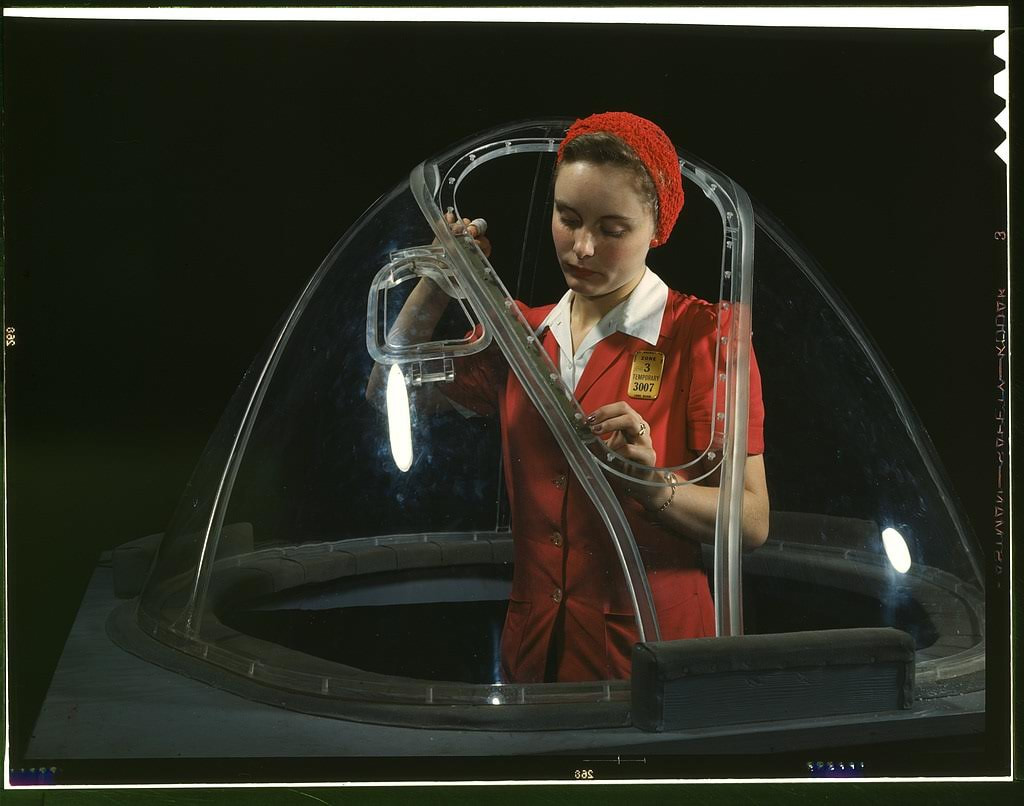 This girl in a glass house is putting finishing touches on the bombardier nose section of a B-17F navy bomber, Long Beach, Calif. She's one of many capable women workers in the Douglas Aircraft Company plant. Better known as the "Flying Fortress," the B-17F is a later model of the B-17 which distinguished itself in action in the South Pacific, over Germany and elsewhere. It is a long range, high altitude heavy bomber, with a crew of seven to nine men, and with armament sufficient to defend itself on daylight missions. Photo provide to US govt by S. Washburn, her grandson. photo: 1942. Farm Security Administration - Office of War Information/Library of Congress Prints and Photographs Division Washington, D.C. the glass ball turrets sit in lines in the factory and the woman in the red uniform with the soft makeup welds pieces of metal to the glittering glass orbs and wishes to burst out of her body fly to the ceiling watch the turrets sitting calmly waiting like eggs for market in rows and rows and rows her head emerges from the globe of glass the B-17 she is casting, she is doing her part in manicured nails and diamond ring, doing her part for her kids and for her country and the man who will cocoon in the naked belly of the B-17 because she doesn’t want him to be alone because who does really not even the navy men on the dock they don’t want to be alone especially not the navy men who are waiting on the dock for one last fuck before they line up in rows to die and die and die she is going to the dock after the nightshift, after the nightshift she is going to the daycare, to the nightcare and after the nightcare she is going to the dock the boys there are warm and alive and they don’t insist that because there wasn’t a body to bury the telegram was sent by mistake, they don’t ask when daddy’s coming home she is rosie in red uniform rivets and all fingers nimbled on the flying fortress the B-17 and sometimes when her flaps of skin catch in the rivet gun they bleed and she likes it, she likes to have evidence of being alive that’s why the woman presses her thumbprint to the glass on each B-17 and imprints herself on the desperate men on the dock so eager wet and panting to show her they are alive too at least alive for now and she peeks her head beyond the glass of the B-17 flying fortress because she needs to emerge she can emerge not like her husband he’s not coming back she knows that someone will die when the turret shatters over germany and her fingerprint will unthread and shatter to pieces too someone will die little pieces in germany or maybe japan where scraps of men float to the surface god there are so many places to die shards of glass trickle from the sky pieces of soldier are falling from the sky Alli Hartley-Kong Alli Hartley-Kong is a historian, museum educator, poet and playwright from northern New Jersey. Her poems have appeared in Stylus and The Human Touch Journal. Frida Kahlo, Self-portrait with Thorn Necklace and Hummingbird I think it’s the audacity, the insouciant composure. Christ’s martyrdom appropriated. Mexico, and life-beyond, she had her own calvaries. Polio. Traffic wounds. Pierced womb. Amputation. But no Santa Teresa. Flesh and politics pressed close. Rivera always, but Trotsky and La Baker. Her own visited self of a half-hundred portraits. Staring. Defiant. The certainty bred of pain. You can do the symbolism. The hummingbird spent of luck and good fortune. The Poe black cat with warning stare. The spider monkey all fidget and chance. Her body mocks supplication, even the white robe. The neck vaunts its necklace crown of thorns, a splatter of blood. The bunched hair wears butterfly clips, the dragonfly hovers. The moustache refuses depilation, maquillage. The eyes repudiate your might-be sympathy. The eyebrows double-arch in black, a bold frown of challenge. What to make of those jungle leaves, green, yellow? Exotica, the plant growths of an inner self? Magic-real, surreal, does not quite fit the bill. It’s Frida’s sense of alien presence, her own. A force of being held from outside herself, displacement. Sumptuous, exact, the un-bodied body. A. Robert Lee This poem first appeared in Imaginarium: Sightings, Galleries, Sightlines. A. Robert Lee was Professor in the English department at Nihon University Tokyo, 1997-2011. British-born, he previously taught at the University of Kent, UK. His creative work includes Japan Textures: Sight and Word, with Mark Gresham (2007), Tokyo Commute: Japanese Customs and Way of Life Viewed from the Odakyu Line (2011), and the collections Ars Geographica: Maps and Compasses (2012), Portrait and Landscape: Further Geographies (2013), Imaginarium: Sightings, Galleries, Sightlines (2013), Off Course: Roundabouts and Deviations (2016), Passsword: A Book of Locks and Keys (2016), Written Eye: Visuals/Verse (2017), Alunizaje/Lunar Landings, with Blas Miras (2019), Writer Directory: A Book of Encounters (2019) and Suspicious Circumstances. What? (2020). Among his academic publications are Multicultural American Literature: Comparative Black, Native, Latino/a and Asian American Fictions (2003), which won the American Book Award in 2004, Modern American Counter Writing: Beats Outriders, Ethnics (2010) and The Beats: Authorships, Legacies (2019). Currently he lives in Murcia, Spain. Field of View I am a stretched canvas. My mother’s yearning background color. Dress dusty pink the color of my first ballet slippers, hair putting up a fight. Thin black belt around my nickel of a waist, it takes me years to become a body. Walking even longer. The field is everything to me. The way sunlight wakes up the colours, the way the hint of a road slices space into before and after, the way home keeps moving away. Collapsing onto the grass, oblivious to how it can stain you, mark you as a child. When do we start seeing the world as wider than we can hold? I paint myself away from the edges of the picture, on another coast, different weather. I paint the story of my mother and what she wanted. I remember when she gazed on me, and when she gazed not on me. I carry hollowness into the rain. Nancy Murphy Nancy Murphy is a Los Angeles based writer and performer. Previous poetry publications include: Stoneboat Literary Journal, Sheila-Na-Gig, glassworks, The Baltimore Review, Eclipse, The South Carolina Review, Altadena Poetry Anthology and others. She studied writing at UCLA Extension Writers Program and Beyond Baroque, and with various private teachers and workshops including the Napa Valley Writers Conference. Originally from the East Coast, Nancy has a B.A. in American Studies from Union College, Schenectady, NY. More at website www.nancymurphywriter.com Naming Birds Because I never learned the names of birds I practiced saying “cormorant” with my sons reading Ping to them at bedtime. We tasted the name, three syllables stretching into pre historic wings, flapping inside our mouths. Mother owned field glasses to view warblers, woodpeckers, waxwings until winter when cardinals collected in flocks on pine trees. She knew the names of birds—chickadees, swallows, meadowlarks, owls, orioles—these she loved with tender heart saved just for them as well as for wrens, doves, swans, geese, a colony of gulls... anything that flew. Because I learned the names of poets, I owned books, read Shelley, Dickinson, Poe. I knew nothing about tertials, nests, wingtips, hatching, or migration. Mother said birds have light but strong skeletons and a four-chambered heart. I said Harper Lee wrote about mockingbirds, they never hurt anybody, that it’s a sin to kill one. I greeted Mother, “Hail to thee blithe spirit!” as she peered into trees. That’s Percy Shelley speaking to a skylark. Wallace Stevens said there’s thirteen ways to look at a blackbird. But I knew none. Not even one. I have, since Mother died, become absorbed with birds. Ping was a little yellow duck, the last to return, and almost devoured. These days I pronounce “cor-mor-ant” slowly, like a prayer, the same way I say “sand-hill-crane” “chick-a-dee” “car-di-nal” as I offer the names of birds like little poems like pieces of bread to my mother. Sandra Frye Sandra Frye is a retired English teacher who lives in Madison, Wisconsin. Sandra has been writing poetry and stories since the age of ten. After teaching for thirty years and raising four sons, she can finally focus her energy on creative writing. She has written two books and is currently working on a third. She is also working on her first book of poetry, Leaving Lessons. Her first book, African Dreams: A Memoir of Service and Salvation, is about teaching English with the Peace Corps in Malawi, East Africa, from 1969 to 1971. The second book, Fatherless: A Memoir of Acceptance and Forgiveness, is about growing up in the midwest as a child of divorced parents in the 1950s. Dark Ladies & Other Avatars: Poems by Joan Roberta Ryan 3: A Taos Press, Denver CO, 2017, 97 pages, $24 The child of a painter and a photographer, I grew up in art museums and art galleries. I learned about the secrets of the body from crafted nudes, both two-and three-dimensional. An only child, I used to spend hours telling myself stories about the color plates in the art books on our shelves and as I drew my own. In her collection, Dark Ladies & Other Avatars, Joan Roberta Ryan reveals a similar sensibility. The first section of her book is dedicated to ekphrastic work, explorations of Cranach, Titian, DaVinci, Caravaggio, De Hooch, and De La Tour. Ryan deftly weaves research with attentive looking in her treatments of these paintings. This section allows her the most reach with her rich vocabulary. Children “nimble” their way. Weavers don’t just used coloured thread, but strands of “Tyrian purple, / crimson kermes, blue woad, saffron, madder.” Abandoned wives cook “lamb printanier and blanquette de veau.” Some poems, like "Viola Revisited" and "Links to Lena" come with their own lists of words down the left-hand margin, in the former, seemingly a gloss on each line (abstemious / prig / elusive / aberrant) and in the latter a prompt for each stanza (rose of Sharon / gamine / inklings). In this section, along with mythical women, religious and secular, Ryan depicts artists and their models, and the wives of better-known characters, such as Rip Van Winkel and Prince Charming. Her female figures reveal complexities of ambition and desire. The second section moves into darker territory, and yet for all that, remains buoyant. Ryan’s poems explore mental illness and physical decline. In the poem "To the Voices," the speaker asks, “Who are you—and why do you haunt / my sister, forbidding her to walk through the park / on Sunday, eat red berries or repeat what you say?” In the poem "My Father’s Hands," about a father stricken with Guillain-Barré, the speaker observes hands “suddenly as blind to touch as if / encased in leather mitts, indifferent / to command as a dozing cat, hitting / too hard, too slow—bereft of feel.” In Pentimento, she describes how her elderly mother, stricken with dementia, is losing her words: “larkspur, columbine, asters, / foxgloves, all withered to lovely flowers—” These poems trace our inheritance from family members—memories, keepsakes (many of questionable provenance), physical qualities like hair colour, and even ashes. The relationships that Ryan documents are complicated but serve, somewhat guilt-inducingly, as fuel for her work. “To whom,” she asks in "Close Kept," “would I reveal / her secrets, dear reader, but you?” The final section brings us closer to the poetic speaker herself—her relationship to her body, her sexuality, the landscape within which she moves, and her family—husband, children, and grandchildren. These poems are suffused with sensuality, as in "Barcelona," where the Cava-tipsy focus of the poem “blushed her way / back from the damas and / handed him under the table / a small damp ball / of black silk.” In "Past Meridian," she describes the transition of youthful desire to an older flame: “every oenophile knows, / raisins make a fine rich wine.” In short, spending time with Ryan’s work is like luxuriating on a bench before a beloved canvas, pouring over a treasured photo-album, or like being a guest in someone else’s well-appointed home. You continue your day glad to be human. Devon Balwit Devon Balwit sets her hand to the plough in the Pacific Northwest. Her poems and reviews can be found here in The Ekphrastic Review as well as in The Worcester Review, The Cincinnati Review, Tampa Review, Rattle, Apt (long form issue), Tar River Poetry, Sugar House Review, Poetry South, saltfront, and Grist among others. Please visit her website at: https://pelapdx.wixsite.com/devonbalwitpoet Clyfford Still’s PH-401 (1957) To no longer be beholden to any side in the painting’s argument of falling reds and jagged black, yellows and greys like smashed birds barely extirpated from the canvas – how traumatised existence has appeared to me. How I long to be the framing wall, or the mind of some enlightened viewer floating away like a kind of bird, abandoning duality. Cyril Wong Cyril Wong is a poet and fictionist in Singapore. His latest book of poems is Infinity Diary, published by Seagull Books. Henry Ford Hospital, by Frida Kahlo (Mexico) 1932 Henry Ford Hospital outside my window the city goes to sleep husbands and wives turn their lights out and let the day go but like the peach to its pit my flesh still clings let me hold you you’re cold as fresh clay burrowed into yourself dry to the bone moments ago you filled me with life a market of raisins prunes mangos broccoli you grew and grew nails on your fingers and toes a heart b stop then a clank under the kitchen table hit me like a breeze whipping by taking everything with it I held the little cashew to my lips he left a faint taste of licorice bitter until the end my body failed carve out the rest of me this body is a snail take the shell away reveal me bare and flaccid Hannah Wagner Hannah Wagner is a resident of Salem, Massachusetts. She graduated from Salem State University. She is also an actor and can be seen in many productions across the North Shore. Her work has been featured in The Broke Bohemian, Mass Poetry's Poem of the Moment, Door is a Jar, Soundings East, Twyckenham Notes, Still Point Quarterly, Incessant Pipe, Sweet A Literary Confection and others. Paul Cezanne’s The Turn in the Road I There are houses at a close distance. They are a town, wedges at angles. Their fronts and doors conjure paths and roads. Roof- colors question II the vegetables, many- fingered touches: dot-leaves mass into shape around fully-clothed branches and towards dying ones. Trunks curve and straighten to earth. Grasses comb the bank of the III road toward fences & mounds; the turn in the road: one step on the straight and I am drawn into the town. Alan Bern Retired children’s librarian Alan Bern’s three poetry books: No no the saddest and Waterwalking in Berkeley, Fithian Press; greater distance, Lines & Faces, his fine press and publishing company with artist and printer Robert Woods, linesandfaces.com. Alan is a writer and photographer who has been nominated for Pushcart Prizes and has won awards for both his poems and stories: runner up for The Raw Art Review's The John H. Kim Memorial Short Fiction Prize for his story; won a medal from SouthWest Writers for his story 'The Return of the Very Fierce Wolf of Gubbio to Assisi, 1943 CE [and now, 2013 CE].' Alan was also a finalist in the NCWN’s 2019 Thomas Wolfe Fiction Prize, and he won the Littoral Press Poetry Prize in 2015. Alan performs with dancer/choreographer Lucinda Weaver as PACES: dance & poetry fit to the space and with musicians from Composing Together, composingtogether.org. Mother With Two Children, 1917, by Egon Schiele Once in Tulln, I ran from my father to live on alchemy, fish bones, and the sweet blue Danube. Every morning two boys rode by on a goat cart laughing outside my window. At sunset my three models came to me: a mother and her children from over the mountain. I posed them flesh against flesh the baby’s tiny hands outstretched. The mother tucked my money into her apron her face warm under my thumbs. The children fell asleep while I painted in the shadows my brain a cold planet lit with spectral fire. Erica Goss This poem first appeared in Ekphrasis. Erica Goss served as Poet Laureate of Los Gatos, CA from 2013-2016. In 2019, she won the Zocalo Poetry Prize. She is the author of Night Court, winner of the 2016 Lyrebird Award, Wild Place, and Vibrant Words: Ideas and Inspirations for Poets. Recent work appears in Lake Effect, Atticus Review, Contrary, Convergence, Spillway, Cider Press Review, Eclectica, The Tishman Review, Tinderbox, The Red Wheelbarrow, and Main Street Rag, among others. Erica is the editor of Sticks & Stones, a bi-monthly poetry newsletter. Please visit her at www.ericagoss.com. |
The Ekphrastic Review
COOKIES/PRIVACY
This site uses cookies to deliver your best navigation experience this time and next. Continuing here means you consent to cookies. Thank you. Join us on Facebook:
July 2024
|
